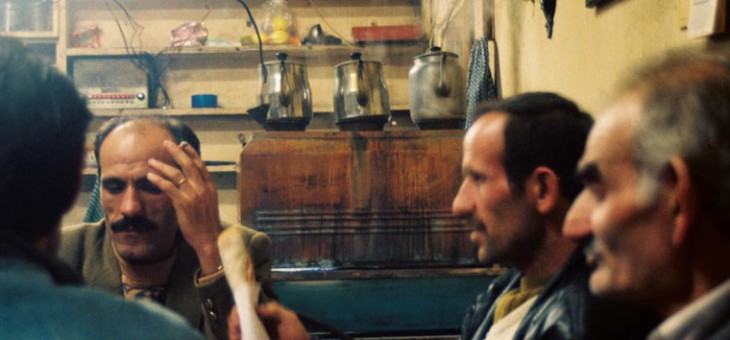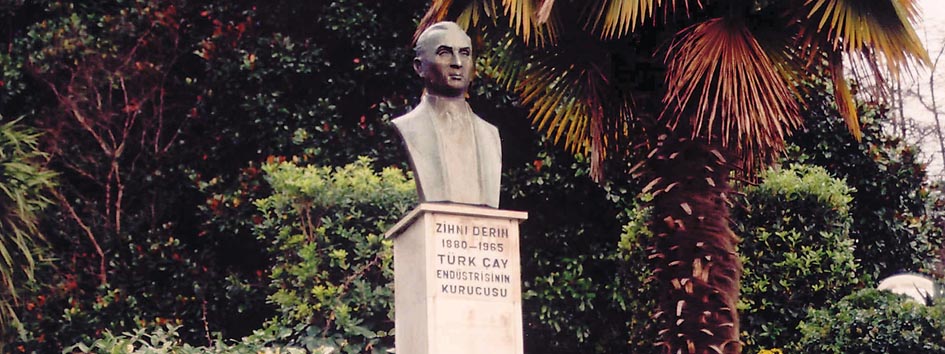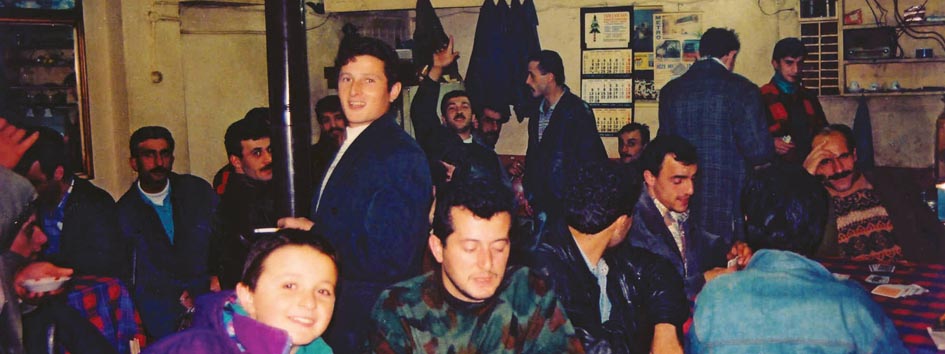
Traveling to the Town of Rize, 1995
When flying over Turkish territory on the way to India or the Far East, memories of my visit to the Northern Turkish town of Rize always comes back to me.
Rize has given its name to the local original Turkish tea. Tea cultivation was started here in the 1940s at the instigation of Attatürk, the greatest leader in modern Turkish history, but the local tea has already made quite a name for itself. The way the tea is prepared and served, in particular, has made the beverage a ritual delicacy in Turkey.
Most tourists in Turkey head for resorts and attractions, but for my colleague and I, the importance of the places we travel to lies in the fact that tea is cultivated and processed there. So, late on a cool November afternoon, after the bus dropped us off on the coast road of Rize, we found ourselves being buffeted by the wind and regularly soaked by water from the turbulent Black Sea. The language barrier was total – no one spoke anything but Turkish. We couldn’t tell the hotels and restaurants from private homes as all the buildings looked the same to us, so we were afraid to go in anywhere.
Which Club Football Do You Support?
We were saved by a tea house, since we knew how to recognize one of those. We entered a room adorned with posters of famous footballers and dominated by a huge tin apparatus for boiling water. The customers, exclusively male, were sitting at wooden tables and drinking sweetened tea. It is a tea prepared in a special way, with the dry leaves first heated over hot steam and then, after boiling water is poured over them, steeped for quite a long time in a metal pot placed over the steam coming up from the tin apparatus. A very strong brew results, which is then poured into small individual glasses shaped like tulips and finally diluted with hot water from the apparatus and strongly sweetened. The cups are served on exquisite saucers made of white glass with red ornaments or on beaten tin saucers.
A deadly silence, however, settled on the room with our arrival. Dozens of pairs of dark eyes over black moustaches regard us with suspicion. We sat down at the one free table and ordered two teas. Tea is a universal word even in these parts, but the atmosphere thickened and we felt as though we didn’t belong and became somewhat scared. A huge man rose from his seat in the corner and headed straight for our table. He sat down beside us and I began to feel a touch faint. In sign language he indicated he wanted me to tell him which football club I supported. The silence was deafening.
My throat dry, I whispered the name of my favorite club and immediately regretted having opened my mouth at all. I realized that we had recently knocked a Turkish mega-football team full of foreign stars out of an international cup contest. The giant sitting opposite us checked the name of the club once more to be sure, and then he got up, raised a hand in the air with his thumb turned up, and bawled something in Turkish into the quiet of the tea-room. All of a sudden, everyone was congratulating me, people all around were buying me tea and the local drinkers couldn’t have been more friendly. There were dozens of warm handshakes, backslaps and expressions of admiration. It felt like I was in a dream. I never expected such a sudden turnaround.
But why? It turned out that the local football fans are the devoted followers of a different Turkish club, the arch-rivals of the one we had defeated. And they were not just overjoyed that their enemy had been knocked out of the cup. They also honored my club, for winning. Now that’s what I call a lucky break!


